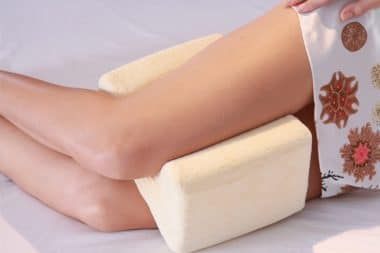Temporomandibular joint disorder, also called TMJ syndrome, is a medical term for chronic or acute inflammation of the temporomandibular joint, that is, the joint which connects the mandibles (jaws) to the skull. Generally joint disorders such as arthritis, ankylosis, trauma, development problems, dislocations and neoplasia are conditions that affect these joints. However, TMJ symptoms are varied and often are diagnosed very late as there are several components involved with them – namely, muscles, ligaments, nerve tendons, connective tissue, bones and also teeth. Sometimes, swelling of nearby tissue produces symptoms of earache in TMJ.
There are many treatments to this disease as it covers several disciplines of medicine such as dentistry, physiotherapy, psychiatry and neurology.
Common Symptoms Of TMJ
Various kinds of muscle disorders such as pain, limited mobility of jaw, popping sound in jaw movement, sensitive teeth (as a result of traumatization due to improper occlusion) or pain in the ears (due to inflammation of connective tissue, the patient frequently mistakes it as earache) may be some common symptoms of TMD.
Some factors which may aggravate TMJ
- If the occlusal surfaces of the teeth (that is, the surfaces which meet when chewing) are damaged due to accidental impact or eroded by improper dental hygiene, TMJ is precipitated.
- Excessive and continuous chewing, such as gum or tobacco, or even nail biting.
- Excessive and/or repetitive jaw movements due to exercise, bruxing, or improper speech habits involving unnecessary jaw thrusting.
- Unmanageable bite size.
How Is It Treated?
Treatment of the occlusal surfaces or the supporting structures if they have been affected. This involves curing infections, repairing damaged surfaces and repair of dental pulp if it has been affected.
The pain is relieved by common analgesics such paracetamol in milder cases. In the more severe cases, where the pain is neuralgic, doctors sometimes prescribe anti-muscarinic tricyclic anti depressants.
As a long term approach, if the patient has any discrepancies in jaw alignment due to habit or history of facial trauma, or even defective alignments from birth, these need to be corrected with proper counseling, physiotherapy or, in very rare cases, surgical intervention. Perverse jaw habits such as clenching or teeth grinding, lip/ cheek biting and improper posture of neck etc need to be taken care of in the long term therapy. According to the NIH and NIDCR, treatments of TMJ should be reversible. This means that according to these recommendations, there should be no permanent changes to the jaw or teeth as a result of the treatment of TMJ.
It is common to use nightplates or stabilization splints to treat jaw and muscle conditions. However, splints should be used for short time and not bring about permanent changes. It is better not to use over-the-counter splints as splints should be tailor-made according to personal specifications. If the patient feels an increase in pain or discomfort on using the splints, the healthcare professional should be notified immediately.
Mandibular repositioning devices are also used to alleviate symptoms, especially painful clicking when the patient attempts to open the mouth wide. However, caution is advised as long term usage of this may lead to a change in the positioning of the teeth and create complications in treatment in the long run. Other methods commonly used are reconstructive dentistry, replacement of the jaw joints or discs with TMJ implants and joint irrigation.
Oral surgery is only recommended as a last resort in TMJ, when all other means have failed. When undertaken, oral surgery through a procedure called arthrocentesis may manipulate the jaw under general anesthesia to wash it out with a saline anti inflammatory solution. This may reduce the inflammation and provide some pain relief in some cases.





